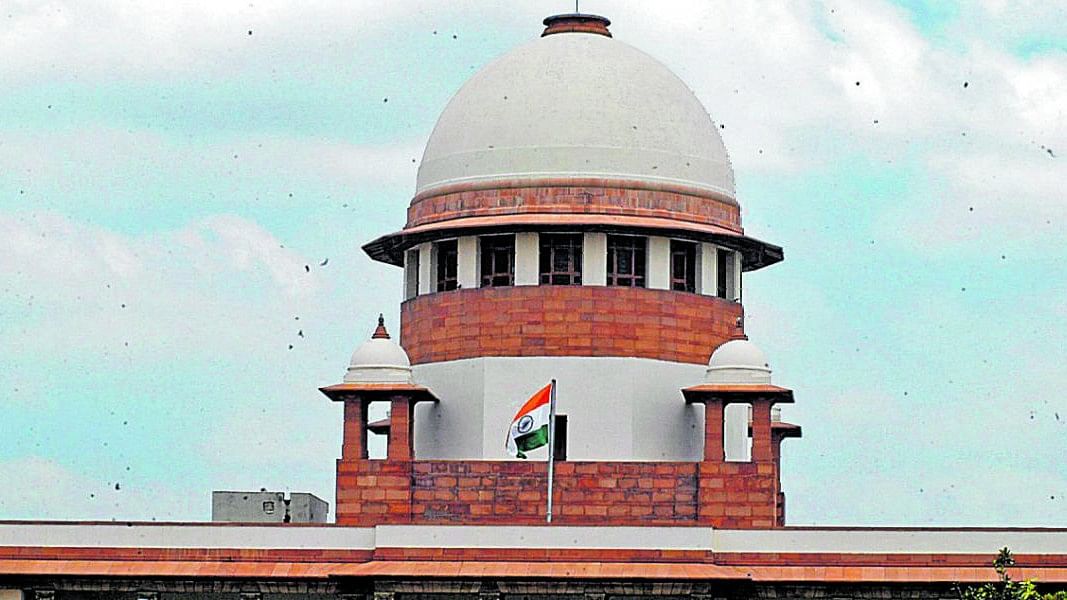
The Supreme Court bench observed that not every intentional insult or intimidation of a member of a SC/ST community will result in the feeling of caste-based humiliation.
New Delhi: The Supreme Court on Friday said the court would not be precluded from granting pre-arrest bail to the accused persons under the Atrocities Act, 1989, if no prima facie case was made out in the complaint.
A bench of Justices J B Pardiwala and Manoj Misra said the courts should not shy away from conducting a preliminary inquiry to determine if the complaint filed under the Atrocities Act, 1989 in fact disclosed the essential ingredients of an offence, before considering a plea for anticipatory bail for the accused.
The top court stressed that all insults or intimidations to a member of the Scheduled Caste or Scheduled Tribe will not amount to an offence under the 1989 Act, unless such insult or intimidation is on the ground that the victim belongs to stipulated groups.
The court said if the complaint does not make out a prima facie case for applicability of the provisions of the 1989 Act then the bar created by Sections 18 and 18-A(i) would not apply and thus the court would not be precluded from granting pre-arrest bail to the accused persons.
"It is expected of the courts to apply their judicial mind to determine whether the allegations levelled in the complaint, on a plain reading, satisfy the ingredients constituting the alleged offence. Such application of judicial mind should be independent and without being influenced by the provisions figuring in the complaint/FIR," the bench said.
This role of the courts assumed even more importance when a prima facie finding on the case has the effect of precluding the accused person from seeking anticipatory bail, which is an important concomitant of personal liberty of the individual, it added.
The court explained the legal provisions under the Prevention of Scheduled Castes and Scheduled Tribes (Prevention of Atrocities) Act, 1989, while allowing anticipatory bail to Shajan Skaria, Editor of an online news channel named 'Marunandan Malayali' in a complaint filed by a Kerala Assembly MLA.
After hearing senior advocate Sidharth Luthra and Gaurav Agrawal for the appellant, and advocate Haris Beeran for the complainant, P V Srinijan, the court said not every intentional insult or intimidation of a member of a SC/ST community will result into a feeling of caste-based humiliation.
"It is only in those cases where the intentional insult or intimidation takes place either due to the prevailing practice of untouchability or to reinforce the historically entrenched ideas like the superiority of the “upper castes” over the “lower castes/untouchables”, the notions of ‘purity’ and ‘pollution’, etc that it could be said to be an insult or intimidation of the type envisaged by the Act, 1989," the bench said.
The court said the term ‘humiliation’ as it appears in Section 3(1)(r) of the Act, 1989 must be construed, that is, in a way that it deprecates the infliction of humiliation against members of the Scheduled Castes and Scheduled Tribes wherein such humiliation is intricately associated with the caste identity of such members.
It also said the offence under Section 3(1)(u) will come into play only when any person is trying to promote ill feeling or enmity against the members of the Scheduled Castes or Scheduled Tribes as a group and not as individuals.
With regard the bar under Section 18 of the Act, 1989 on anticipatory bail to the accused, the bench said, it would apply only to those cases where prima facie materials exist pointing towards the commission of an offence.
"If the necessary ingredients to constitute the offence under the Act, 1989 are not disclosed on the prima facie reading of the allegations levelled in the complaint or FIR, then in such circumstances, as per the consistent exposition by various decisions of this Court, the bar of Section 18 would not apply and the courts would not be absolutely precluded from granting pre-arrest bail to the accused persons," the bench said.
The court said the duty to determine prima facie existence of the case is cast upon the courts with a view to ensure that no unnecessary humiliation is caused to the accused.
"The courts should not shy away from conducting a preliminary inquiry to determine if the narration of facts in the complaint/FIR in fact discloses the essential ingredients required to constitute an offence under the Act," it said.
